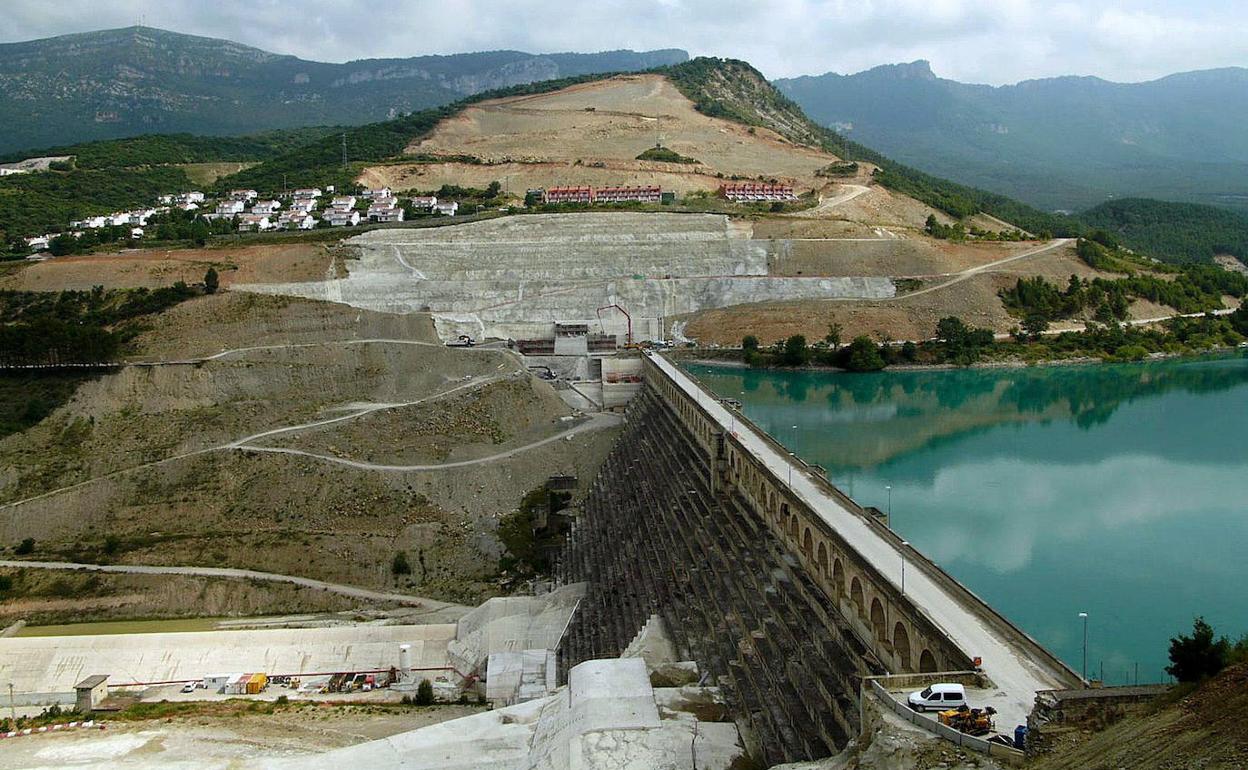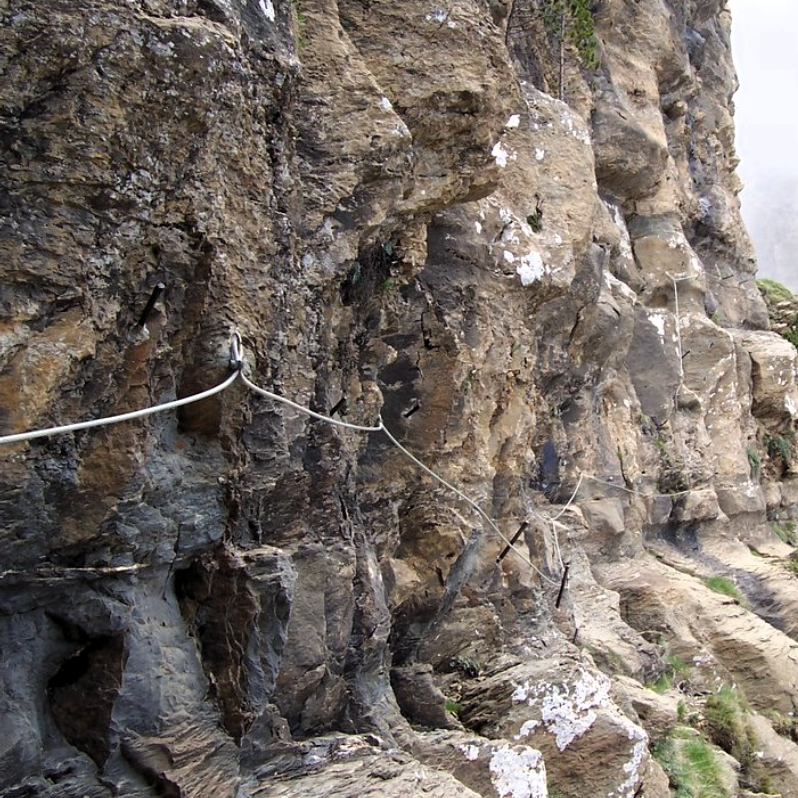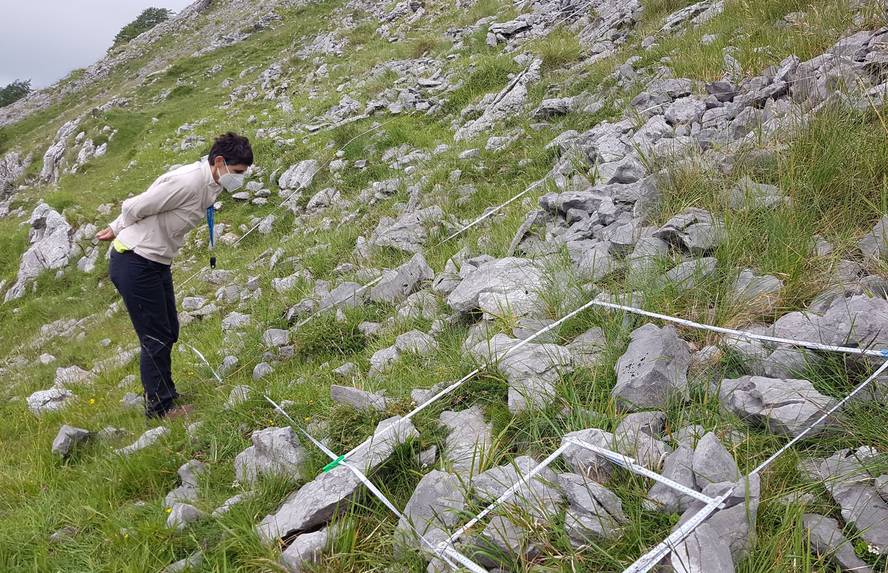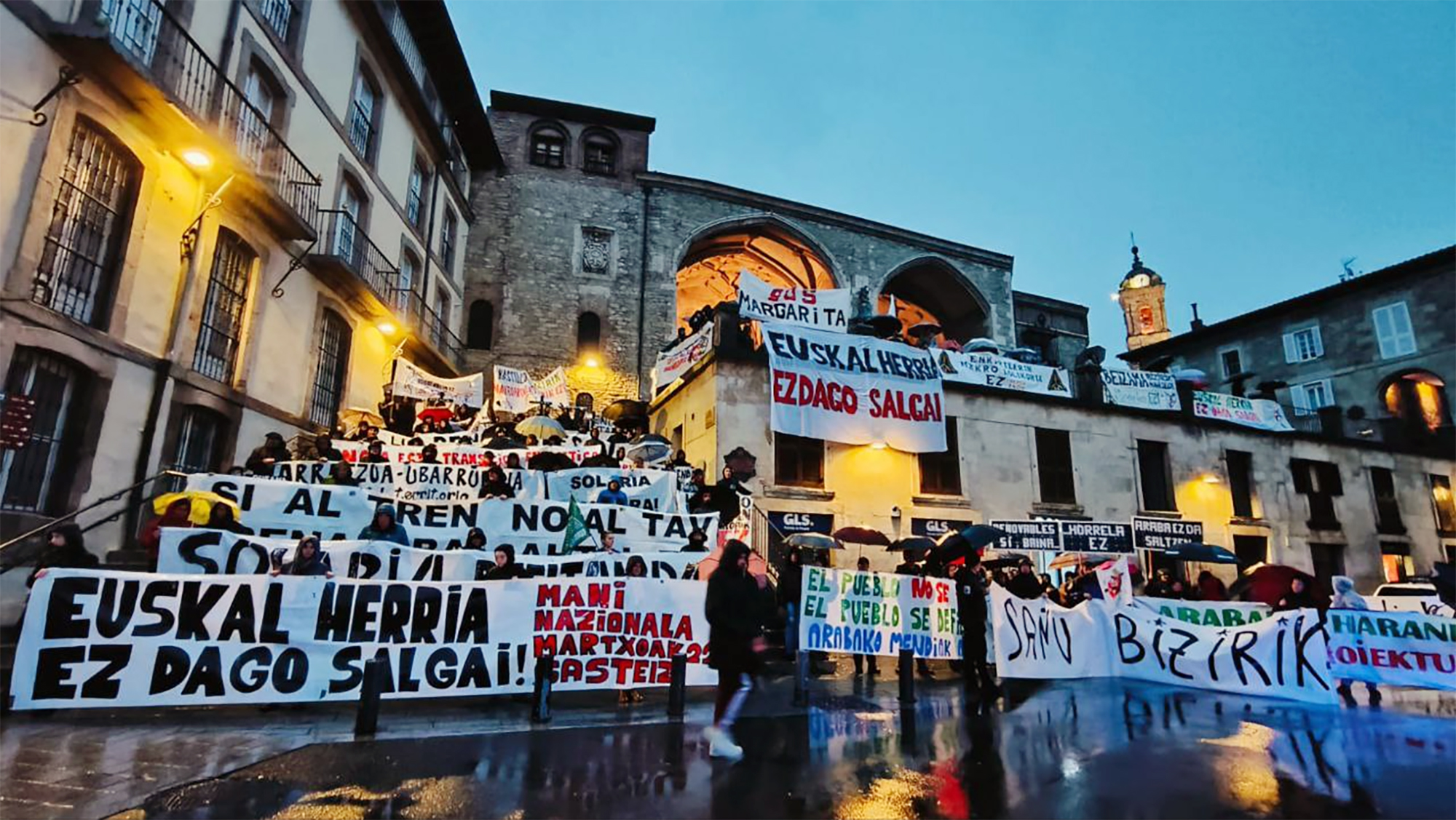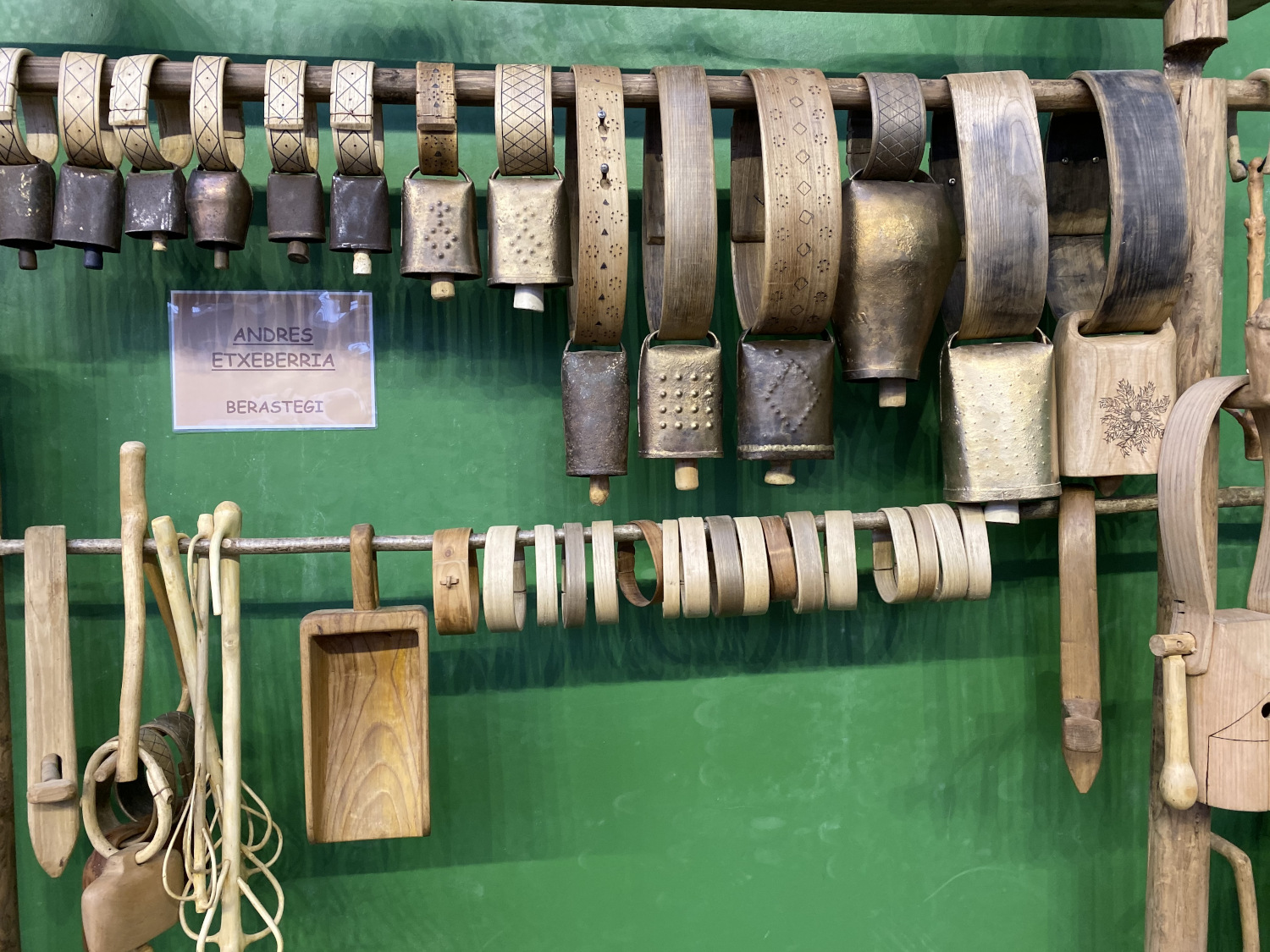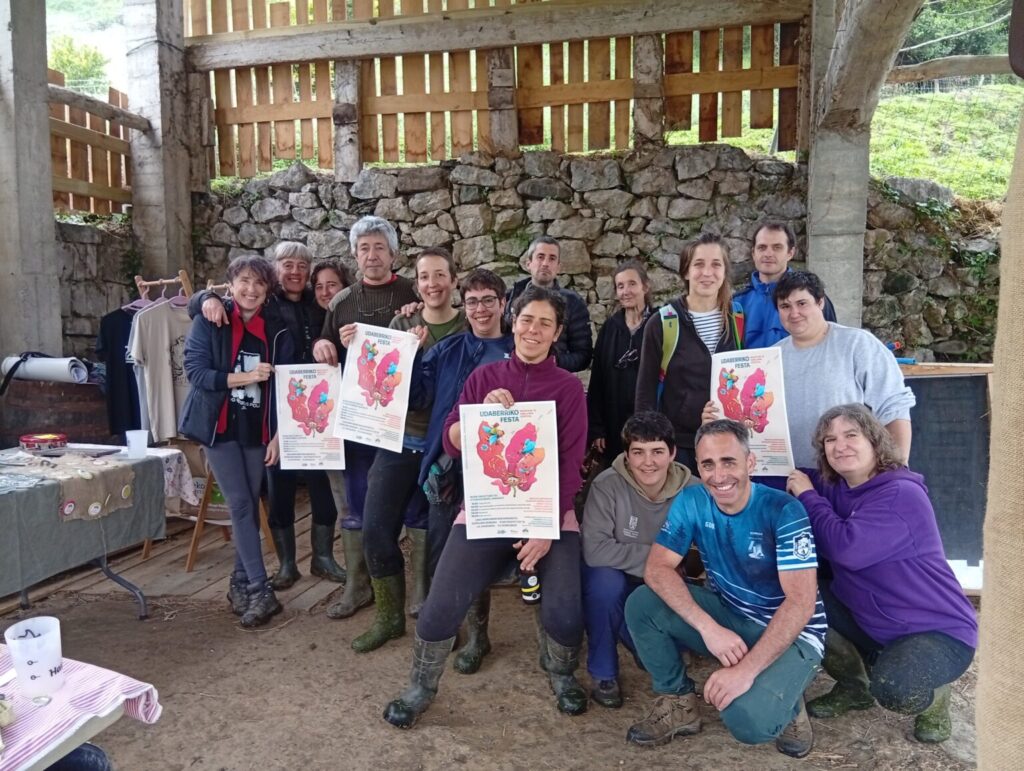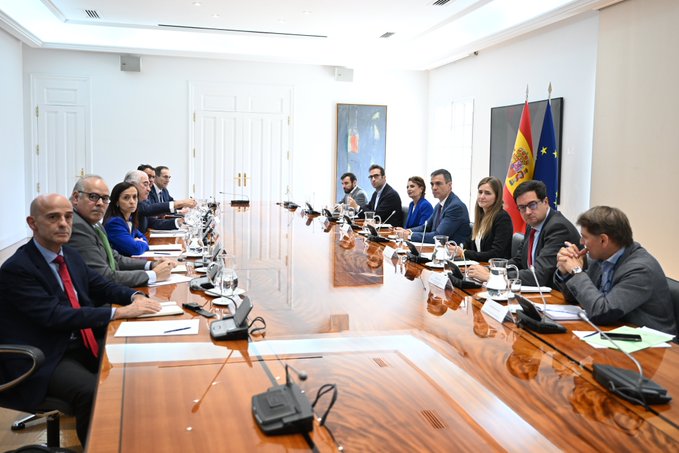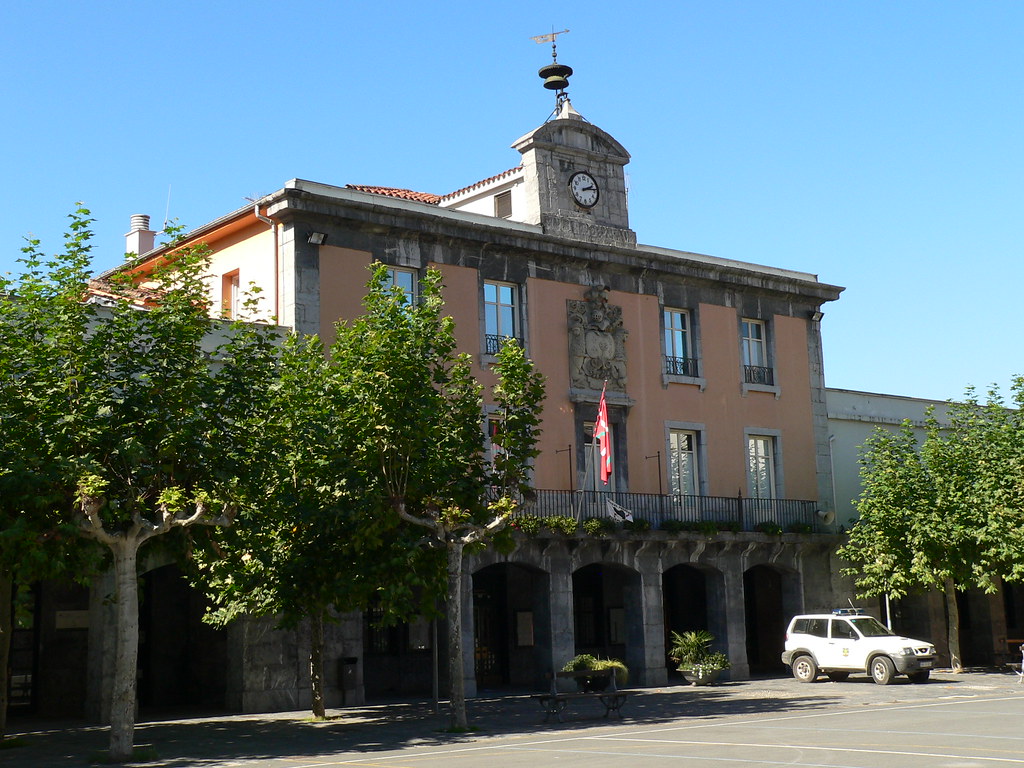"If we want to save the world from climate change, we must end capitalism."
- Massive disobedient activities disrupting the activity of the gigantic German coal mines are organised by Ende Geländ, an association of environmentalists, leftists and non-governmental organisations. Taking as a model the actions of this association, Gipuzkoa Zutik joined on May 27 to the disobedient protest in which Laura Wollny, militant of the groups Ende Gelände and AugeCO2hlt, among others, participated.
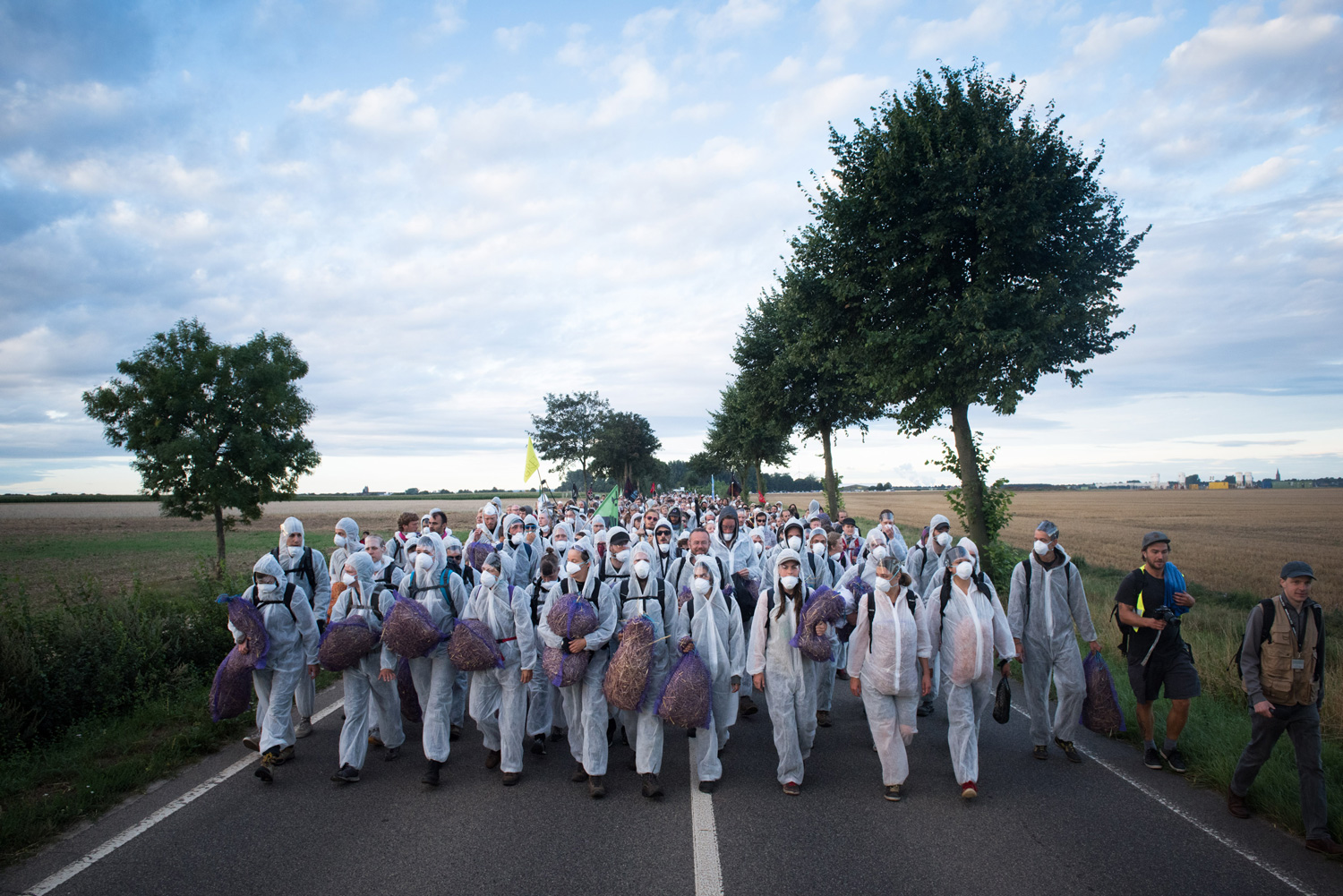
What does Ende Geländ mean?
Enough! In other words, we do not want more coal to be extracted. It is a German phrase that cannot be translated literally.
How did it come about?
In the summer of 2010, we started organizing climate camps and taking action to block mining infrastructure in Rhineland. More and more people started coming closer, we gathered a lot of experience and decided to take a leap: we started asking the friends and the political groups around us if they were willing to form an action group, and the result was Ende Gelände.

What is your core activity?
We carry out massive actions of civil disobedience. We form well-prepared groups and we go to the mines and the railways linking the mines with the thermal power stations. We block them with our bodies. We sit down and stay until the police come or get tired.
In his speeches, reference is made to fossil capitalism. What does it consist of?
Not only are we against the extraction of lignite, a kind of coal, but we are more against capitalism. Capitalism is based on burning fossil fuels, which began with burning coal in the UK. So if we want to put an end to the burning of fossils and save the climate, we must put an end to capitalism.
Don't you think that renewable capitalism is possible?
That's the key; we don't think that beyond fossil capitalism there can be renewable capitalism. Capitalism will always be fossil, they go together.
Therefore, you want to put an end to capitalism on one of its bases, with the burning of fossils.
We have to start with a starting point: we collide with lignite, which is very harmful to the climate. In addition, our action encourages people to be disobedient; they are actions in which many people can participate, they are public calls, we explain the details of the actions well, we are not a clandestine group. But at the same time, they're extraordinary actions, because we don't block the areas that the police protect every day. We encourage participants to take an active position, and we think that pushes people to be disobedient in other ways. We always try to link the fight against lignite with other struggles such as the fight for refugees or climate change, such as the situation of the countries of the south of the world.

They use the concept of climate justice. What do you mean by that?
In the North of the world, we are dumping most of the CO2 on the planet, and we also enjoy the products produced in this activity. Our way of life is the source of climate change, but those who suffer its impact are those in the south of the world. There are areas that are suffering from climate change, such as the islands that will disappear with sea level rise or residential areas around growing deserts. In addition, local states and governments are weaker in providing a strong response to this situation. We have to start doing something, we cannot ask anyone in India not to go by car.
Do they relate climate to social justice?
That is, it's not just environmental issues or white bears. We don't want to confine ourselves to that, we want to save all of humanity, especially people who have little to do with the creation of climate change.

You say that as a method they use civil disobedience, how is that disobedience?
Before we take action, we communicate what we're going to do, we convene assemblies to explain what we're going to do or almost everything we're going to do, because the police tend to be attentive. We give several guidelines: we will block our bodies, we will not destroy anything, we will not attack the police because they are not our goal, our objectives are railways and machinery. We also call on the press so that people know what we do.
Why do they resort to civil disobedience?
In Germany, civil disobedience has a great tradition, especially in the anti-nuclear movement. They did actions similar to what we do. And of course, those actions are illegal.

Don't you see another way?
Before the arrival of young entrepreneurs like us, those who lived there fought the mining projects, but destroyed their peoples. They tried to contact politicians and mining companies, they went to court, but they didn't get any results. Those who want to get coal don't care what's going on in those areas or globally. In this situation we turn to civil disobedience.
They say that your disobedience has no legality, but it does have legitimacy. Where does this legitimacy come from?
Betting on climate justice in Germany means putting an immediate end to the extraction of fossil fuels in the country, as we are harming ourselves. And there's no other way to do that, so it has legitimacy. It is our duty.
What are the consequences of opposing the law?
In Germany, the blockade of public roads is punishable by fines. But almost all mining land is owned by the companies and has opened a judicial case against us. So far we have had no problem, we have won trials or we have been given sustainable fines. The problem is that they have started to impute the economic losses of the cuts in production caused by our blockade and to ask for a lot of money.
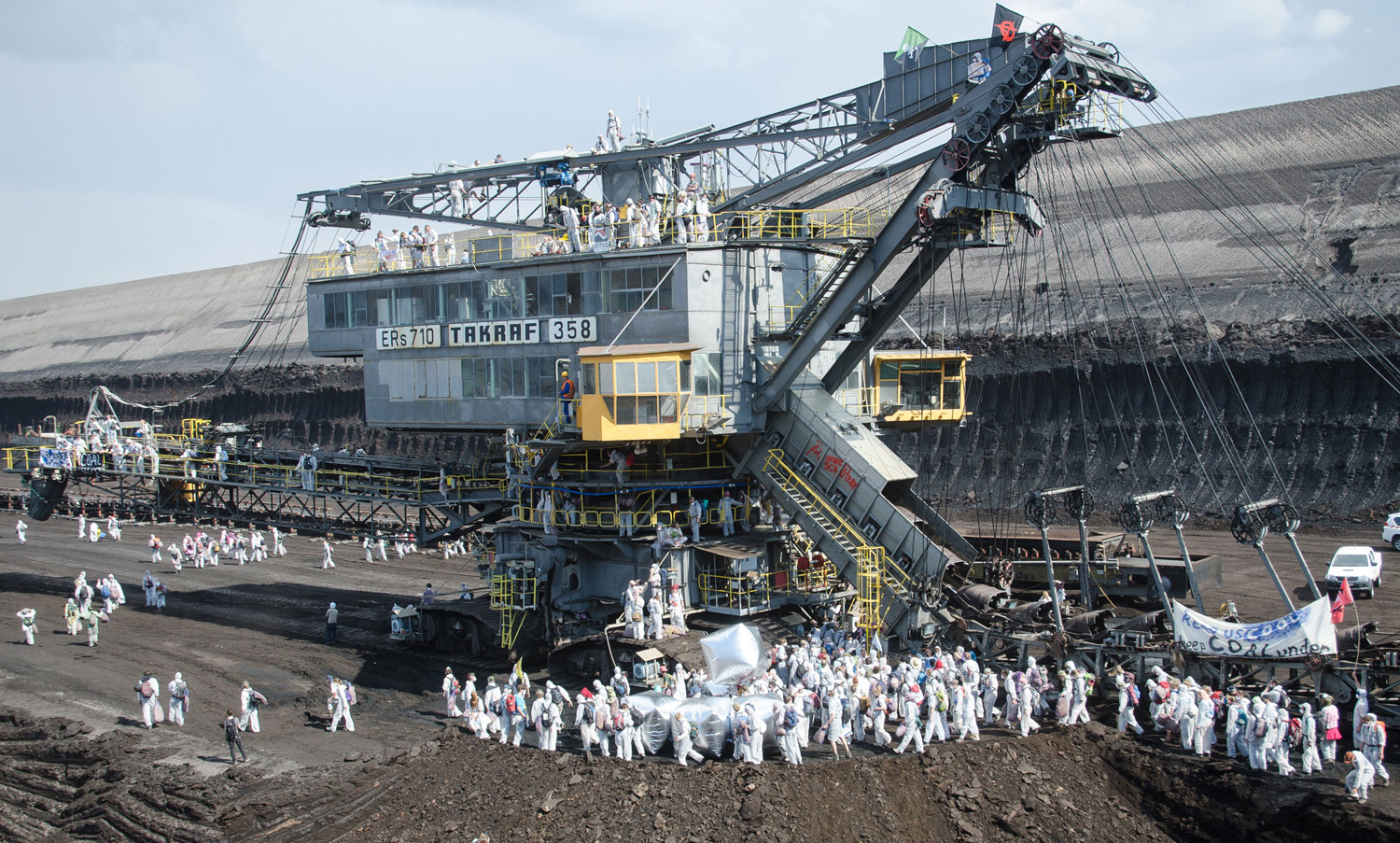
A meeting will be held in Bonn in the autumn to implement the Paris climate agreement, and you intend to take action there. Why?
The United Nations Climate Summit will be attended by representatives of states from all over the world. As is often the case in these cases, we will discuss what to do in the fight against climate change, but then no effective measures will be taken to prevent climate change. The summit, organised this year by the Fiji Islands, will be held in Germany; in other words, it will be held in one of the major players in climate change, a country that is little involved in promoting climate change, but which at the same time risks being submerged by rising sea levels. Bonn is also a town near the mines. We are going to denounce that Germany does not do so much against climate change and that it does not use so much renewable energy, although that slogan is often repeated.
He has been to Getxo, Vitoria and Zubieta [then he went to Pamplona], what do you think of the movement he has seen here?
I very much liked them and I found them interesting because I have found small movements, but very well rooted between peoples and neighbours. That does not work very well in Germany, that is the point we have ahead of us.
Automatizazioaren eta abereen inguruan kuxkuxeatzen ari nintzela, ukuilu automatizatuen informazioa hasi naiz eskuratzen. Nire idazmahaiaren erosotasunetik idazten, gizakion kontsumorako modu masiboan esplotatzen ditugun abereen bizitzak nahiko penagarriak direla iruditzen zait,... [+]









